

The fourth edition of the conference in the series “The best way to predict the future is to create it”, organized by the Kulski Foundation, took place on 27 July, 2021. Dozens of panelists discussed the key initiatives to strengthen the Polish health care system in the face of a pandemic and post-Covid reality. The conference took place in the multimedia studio at the Sofitel Warsaw Victoria hotel in the hybrid format.
The conference was organized by the Kulski Foundation and Institute for Social Policy Development. The institutional partner of the conference was the Medical Research Agency. The honorary patronage over the event was taken by the Minister of Health, the Ministry of Development, Labor and Technology, and the National Institute of Public Health of the National Institute of Hygiene-National Research Institute.
The conference was moderated by Bartosz Kwiatek, journalist from Polsat News.
The conference was launched by Małgorzata Bogusz ? President of the Kulski Foundation and dr hab. Radosław Sierpiński ? President of the Medical Research Agency.
Recordings of all panels are available on the Foundation?s YouTube channel : under this link as well as by clicking on the graphics of individual panels below.
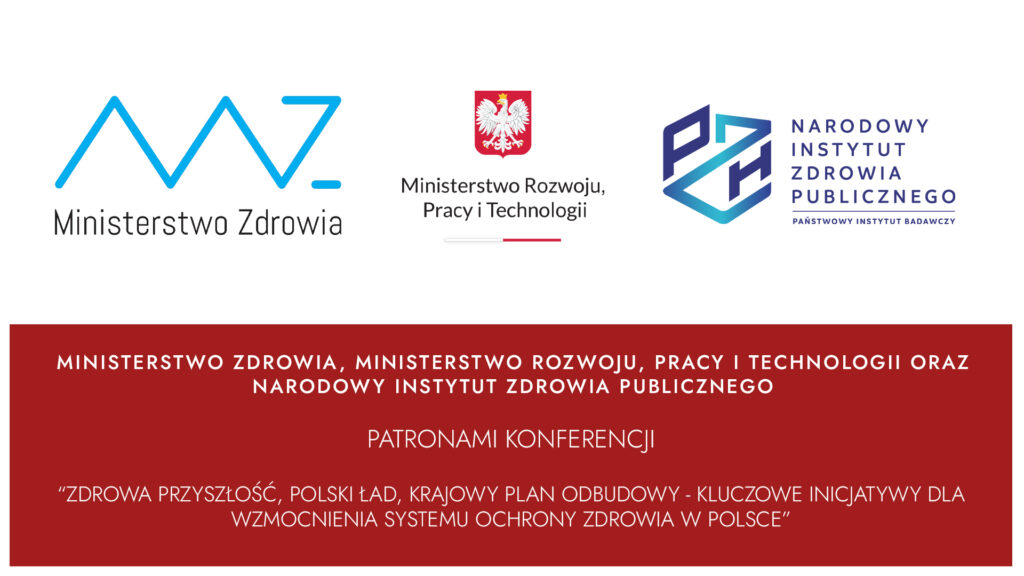
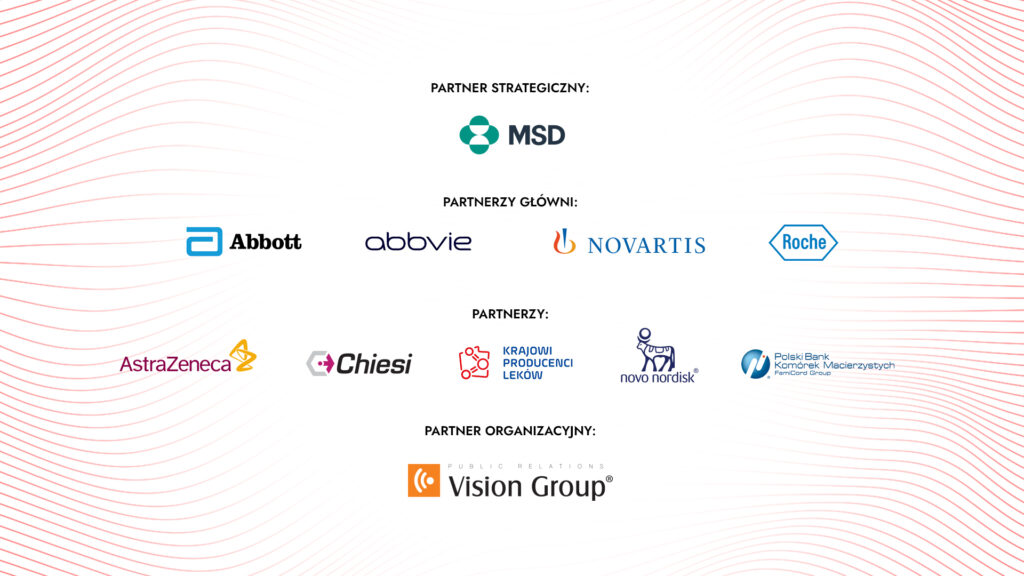

The conference was opened by Małgorzata Bogusz ? President of the Kulski Foundation and dr hab. Radosław Sierpiński ? President of Medical Research Agency.
?When in 2019 in Washington we inaugurated our series of conferences, no one expected our lives to turn upside down at such a radical pace within 2 years. For many of us, today?s conference is also one of the first opportunities to meet in person in a wider group of friends and business partners, as well as one of the few chances for direct interaction? ? during the conference opening ceremony said Małgorzata Bogusz, President of the Kulski Foundation, President of the Institute for Social Policy Development and Member of the European Economic and Social Committee for 2020-2025.
?Ladies and Gentlemen, I am very pleased to participate in this important conference. I am delighted to deliver opening remarks and meet you in this hybrid format, see familiar faces and, above all, discuss relevant topics. I think the slogan that opens this conference today, which speaks about the ?Polish Deal?, National Reconstruction Plan (KPO) funds, and, first and foremost, about main health sector issues is, in fact, the initiative of all of us. In my opinion the fact that health is one of the priorities of the European Union, the priorities of the KPO, becomes the reason for discussing how we should use this money?- with these words dr. hab. Radosław Sierpiński, President of the Medical Research Agency, started his speech.
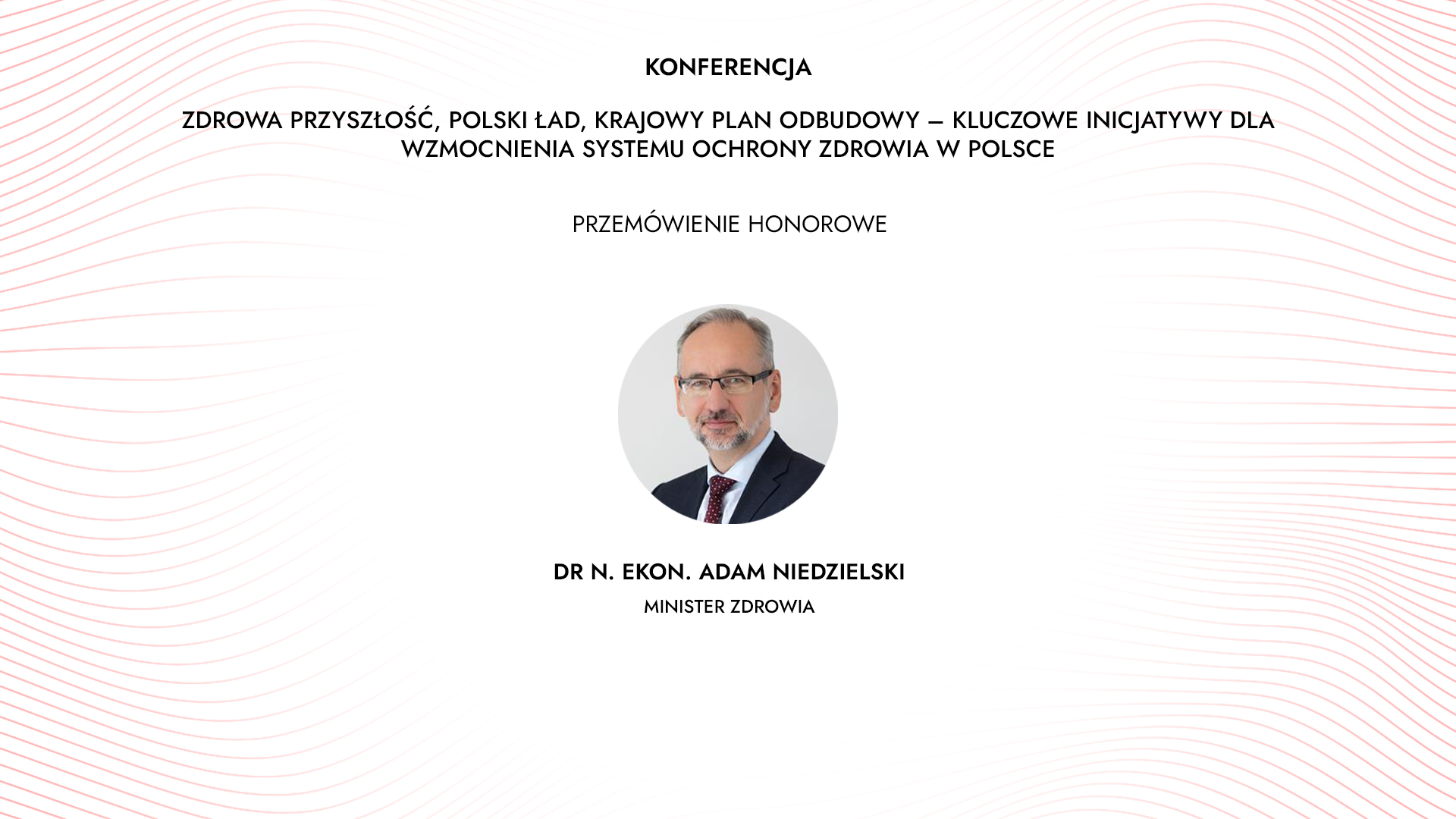

?The ongoing pandemic has highlighted the need to effectively address the non-epidemic needs of our patients, which accumulate in the form of the so-called health debt. I sincerely hope that government programs that are currently in place, such as the Polish Deal, the National Reconstruction Plan or various types of solutions in the field of public policy of the Ministry of Health, will enable to successfully tackle the priority needs of the health care sector? ? with these words the Minister of Health, dr n. ekon. Adam Niedzielski addressed the conference participants in a letter read out by the president of the Medical Research Agency, dr. hab. Radosław Sierpiński.
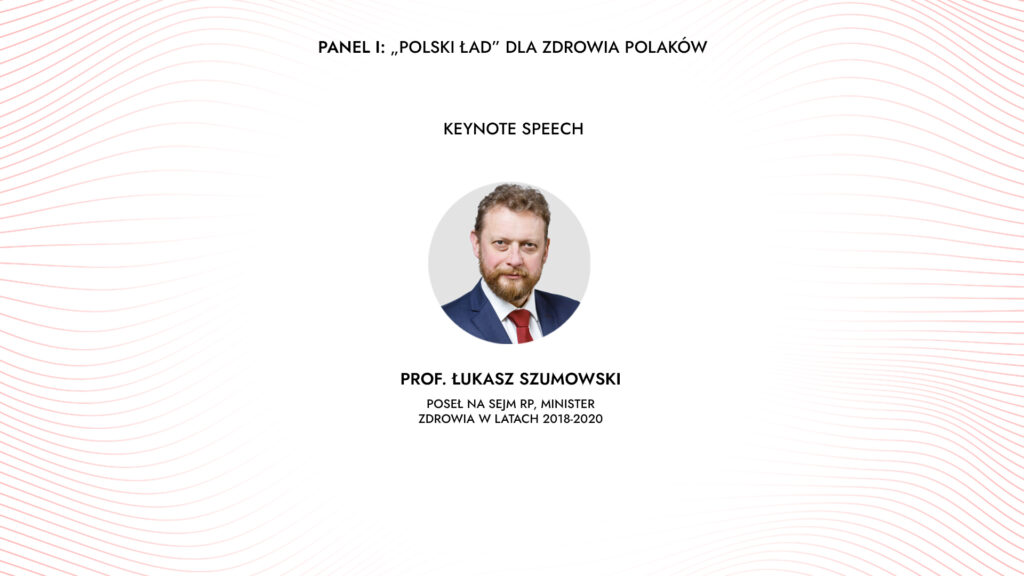

Introduction to the first discussion panel was given by prof. Łukasz Szumowski.
In his presentation, the former Minister of Health said that ?Covid is one of those crisis situations that tests our system, which shows both its strengths and weaknesses. I think that when we see these weaknesses in the near future, we will surely correct them. Definitely, we know that prevention is extremely important in the long term. Civilization diseases, which cause mortality, but also treatment complications, which, contrary to appearances, are quite an important element of loss of health and life ?.
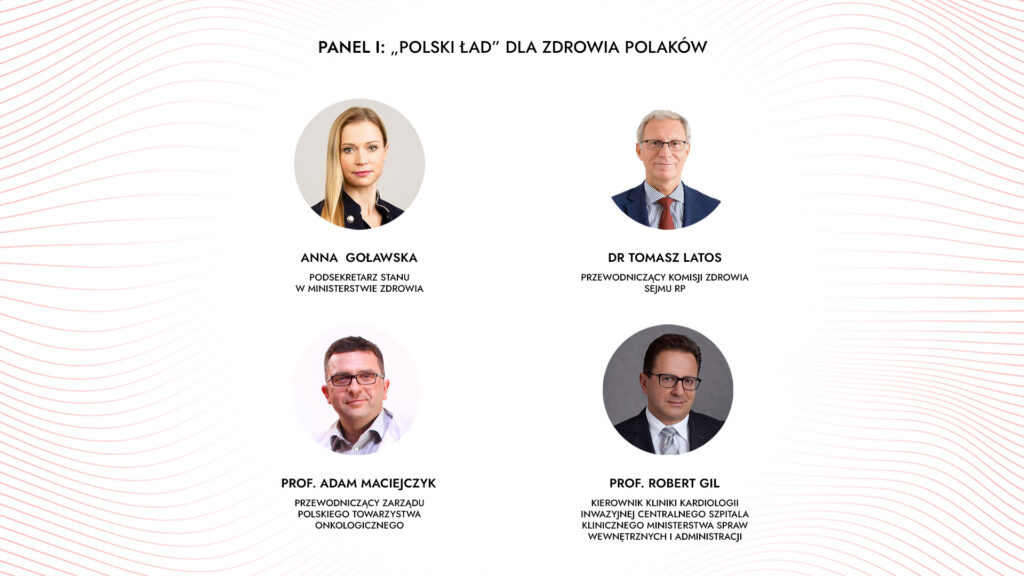

The discussion within the first panel was opened by prof. Adam Maciejczyk, Chairman of the Board of the Polish Society of Oncology. Regarding oncological issues, he stressed that ?the effect of faster access to oncological care could be immediate and we have noticed this kind of effect, because just measuring the availability of oncological care caused all clinics to reorganize and suddenly converted from two months in two days. It was enough to start measuring, and progress comes right away. Here the patient has just experienced the effect that is very important to him.
In turn, Anna Goławska, Undersecretary of State in the Ministry of Health, in the context of digitization, said that ?Covid has in fact significantly accelerated the development of digitization in health care. It forced us and medical institutions to act in such a way, so that we could use these digital solutions. This makes us excites, because COVID trained us very well and made us use those tools that de facto already existed (e-prescription, e-referral), but not everyone was convinced of them. ?
?There are different emotions with regard to oncology patient. Here we talk about life and the next chance introduced by new pharmacological technology, which is quite expensive sometimes. I do not want to go into these details, because I?m not the person to decide who to give and extend this chance and who to reject, saying ?Unfortunately, I face a wall: nothing else can be done?. The cardiological patient is theoretically in a better situation, because his/her therapies are much cheaper today; at the same time, however, the scale of these therapies forms a huge amount of money from the state budget and I understand the dilemma of the authorities? ? said prof. Robert Gil during the conference, Head of Invasive Cardiology Department from Central Clinical Hospital of the Ministry of Interior and Administration.
Dr. Tomasz Latos, Chairman of the Sejm Health Committee of the Republic of Poland said: ?Of course, this matter is multi-element here and the truth is that we can create excellent TV programs, or generally health programs, only as someone has to want use these pro-health programs, so someone must also watch this program on TV. Those programs are extremely important and necessary, but there is such a danger that their viewership, unfortunately, will not be high. ?
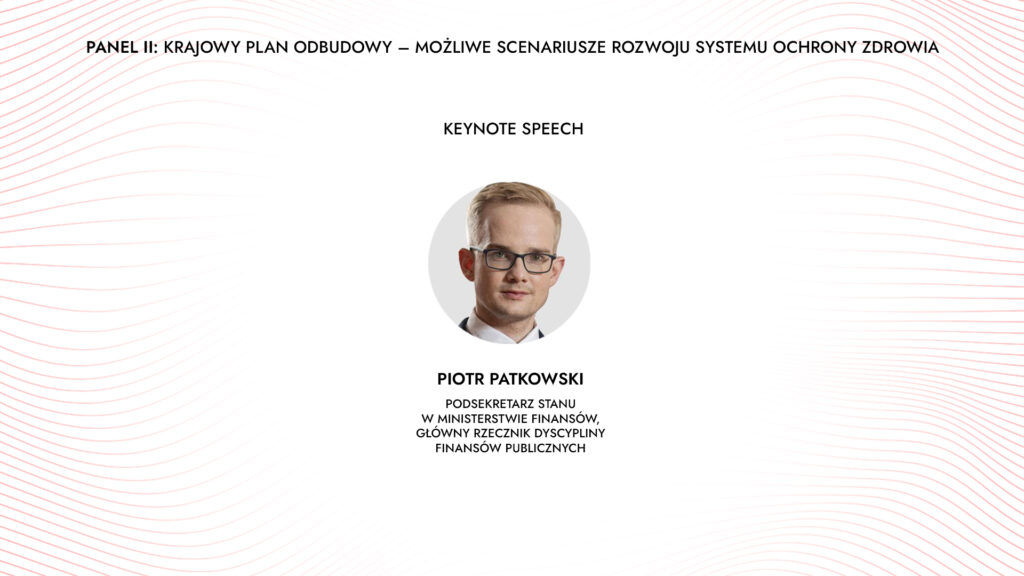

Panel II was opened by Piotr Patkowski, Undersecretary of State in the Ministry of Finance and the Chief Spokesman for Public Finance Discipline. Minister Patkowski referred to the funds for health protection, which are included in the National Reconstruction Plan: ?The National Reconstruction Plan will of course be a very important element in the coming years, but we cannot fall into such rhetoric by submitting KPO expenditures over billions of zlotys, which come from the central money, and in fact from Poles? contributions to the protection of health care. Thus, we can lead to the wrong thesis that the European Union finances health care for us. Of course, this money is very necessary for us, but it will be a supplement, not the main element financing what is happening in public health. ?
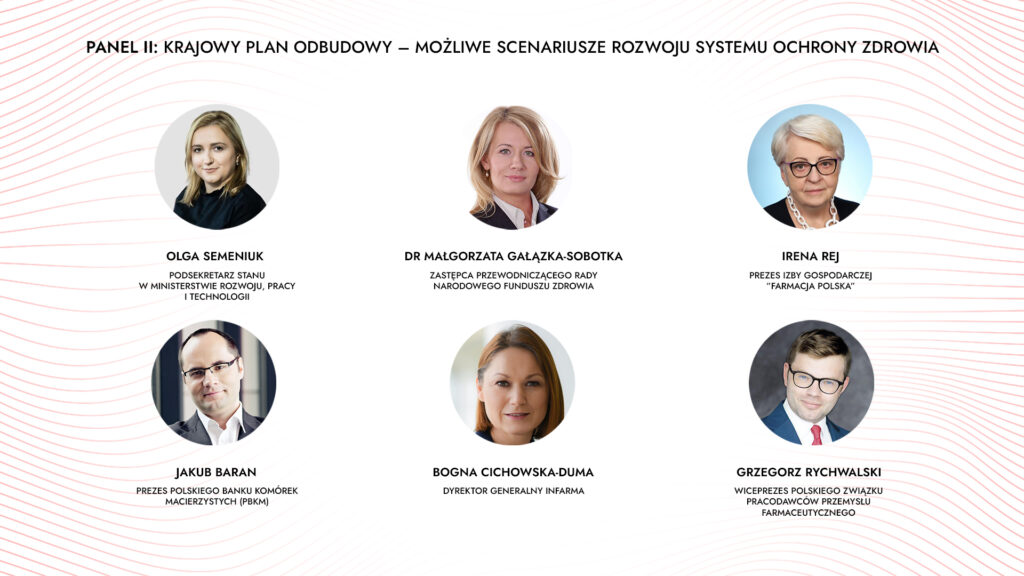

Małgorzata Gałązka-Sobotka, Deputy Chairman of the Council of the National Health Fund, emphasized that ?there is a great political and management exam ahead of us. How to allocate these funds wisely, how to manage these large investment plans well, so that not to lose the main character, the patient. It seems that it is essential in order to apply proven solutions, strictly related to project management. ?
?I also think that the big problem that we have is that you do not evaluate facts based on specific analyzes. Counting something, you do not talk about specific solutions, simulating, you only make some wishful solutions and unfortunately they do not work? ? summed up her statement in such a way the President of the Chamber of Commerce ?Farmacja Polska? ? Irena Rej.
Bogna Cichowska-Duma, Director General of INFARMA said that ?we should all focus now on catching up with the work that is left and paying off this health debt. The national framework for reconstruction serves this purpose and we will be supported by these additional funds from the European Union, I agree with my previous speakers. We have to remember all the time that financing of the health service is from our contributions, citizens? contributions, contributions of future patients. This is NHF main source and that is where our services are paid. ?
Grzegorz Rychwalski, Vice-President of the Polish Association of Pharmaceutical Industry Employers: ?The example of the pandemic has shown how Europe is very dependent on its suppliers from distant Asia. Therefore, Europe has decided that it is necessary to strengthen the existing one and create new conditions for locating the pharmaceutical industry in the Member States of the European Union. These were the foundations of the entire KPO in the field of the pharmaceutical industry. ?
In turn, Jakub Baran, President of the Polish Stem Cell Bank (PBKM), warned that ?there is a pandemic. What is happening now, for example in Catalonia, where there is a dramatic situation in hospitals, indicates that despite the very high level of vaccination in Spain, the situation is difficult and it is getting worse. Israel, which is at the forefront of absolutely everything, is now introducing more restrictions, so I think in this context we should not assume that there is no pandemic. The pandemic will come back, the question how strong ?
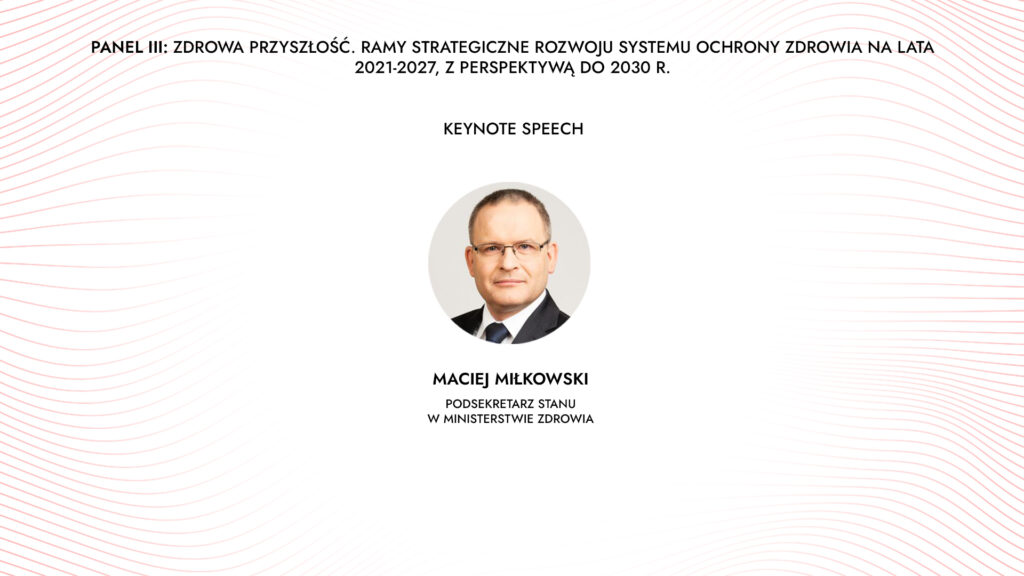

Panel III was opened by Maciej Miłkowski ? Undersecretary of State in the Ministry of Health.
Minister Miłkowski said that ?we recently had a policy paper prepared by the previous government, Minister Zembala. We had a policy paper for health protection for 2014-2020. We are also approaching the next planning period, i.e. 2021-2030, and in this respect the Ministry of Health announced another strategic report: ?A healthy future, strategic framework for the Polish health care system? for the upcoming years, until 2030, where this strategic document is a public policy, which is in line with the Act on the conduct of the 2006 development policy and constitutes such a policy sector, and in this direction we will carry out our entire health policy, directed at these basic elements. ?
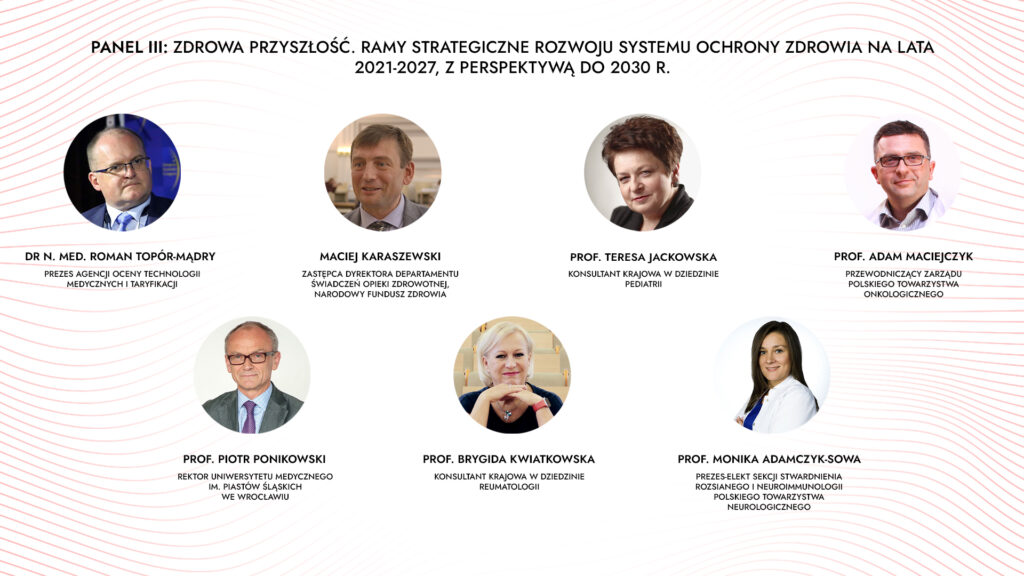

Prof. Teresa Jackowska, National Consultant in the field of Paediatrics, emphasized: ?We know exactly how the number of cases in obese children and adults has increased. We have to deal with it with the prevention that is the most visible and the most countable ? prophylactics with vaccinations. I think that during the period of the pandemic in the world and in Poland during the COVID-19, we don?t need to convince you anymore. I say ?we? from the point of view of people who have been suffering from infectious diseases for many years, are paediatricians and people who have specialization in infectious disease among adults. ?
Prof. Adam Maciejczyk emphasized the essence of pediatricians: ?it is very good that pediatricians are involved. A family doctor is to lead this process within the group of people he supervises. It would be very good to teach it from the very beginning, not only at universities, (here we have a representative from the important university in Wrocław), but also from primary school, so that children are educated. ?
Prof. Brygida Kwiatkowska, National Consultant in the Field of Rheumatology, said from the perspective of her specialization: ?it is indeed so and rheumatology is treated and associated with the elderly. It is included in the natural aging process, and we forget about the whole group of inflammatory diseases, which, starting from childhood, where we have juvenile idiopathic arthritis through inflammatory diseases, the range and peak of incidence of which is between 20 and 50 years of age. So these are all young people. ?
Prof. Monika Adamczyk-Sowa, President-elect of the Section of Multiple Sclerosis and Neuroimmunology of the Polish Oncology Scientist, emphasized that ?diseases of the elderly will lead to a significant burden, when it comes to the budget dedicated to health care, due to the fact that those people for who we do not take care of properly or carry out the process inadequately, will generate high social costs. By engaging working and professionally active people for their care, but also burdening the system with the necessity to provide institutional care. ?
?First, let?s get back to numbers. You talked about a few or a dozen people dying every day. I would like to remind you that last year the number of deaths in Poland increased for the first time and it increased dramatically. [?]. Several hundred people every day, women and men die every single day of cardiovascular diseases. For the first time in several years, we have seen a clear growth in the last few years, so something is wrong?? said Prof. Piotr Ponikowski, Rector of the Medical University of Silesian Piasts in Wrocław.
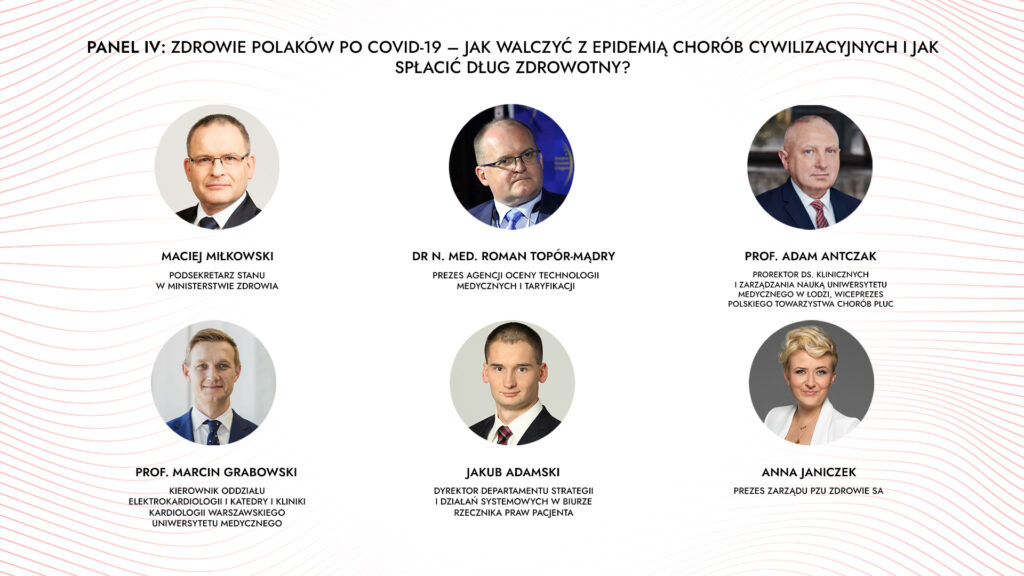

Prof. Marcin Grabowski, Head of Electrocardiology Department of the Cardiology Clinic of the Medical University of Warsaw, said from his perspective: ?We were actually prepared for a larger scale of the problem and luckily, at least from our own experience, we do not observe so many of these severe cases of post-COVID cardiological complications, but this debt, which we contracted is primarily a problem with the delay in chronically treated cardiac patients.?
Prof. Adam Antczak, Vice-Rector for Clinical Affairs and Science Management at the Medical University of Lodz, Vice-President of the Polish Society of Lung Diseases, emphasized that ?the majority of COVID patients those, who require some kind of physiotherapy. Let?s call it post-COVID or pulmonary, if it concerns mainly the lungs. ?
Anna Janiczek, President of the Management Board of PZU Zdrowie SA: ?I confirm all these observations, or rather the results of research on this debt, where we speak directly. We have increased mortality not in these oncological diseases, because there is a several percent increase year on year, but rather in cardiology, pulmonology. ?
Jakub Adamski, Director of the Department of Strategy and Systemic Activities at the Office of the Commissioner for Patients? Rights, emphasized the role of the Patients? Commissioner. He said: ?The Commissioner does not only work in individual cases, but also where the collective rights of patients are violated, i.e. also in the field of access to services. All these situations translate into real help for patients, who actually found themselves in difficult, completely new situation. ?
Dr Roman Topór-Mądry, President of the Agency for Health Technology Assessment and Tariffs said ?that there are voivodeships that have benefited greatly from health. Pomorskie voivodship is such a great example, where it was possible to increase health significantly over 30 years, while the Lodzkie voivodeship ? only slightly. These are also conclusions for us. Now we are wondering what to do intensively, to additionally compensate for the last year effects?.
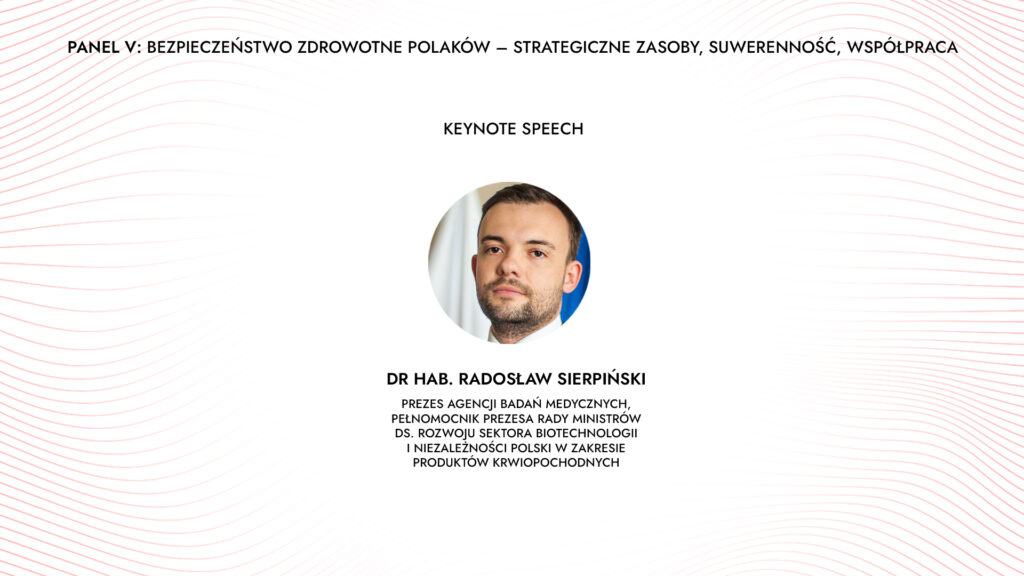

Panel V was started by dr hab. Radosław Sierpiński: ?plasma fractionation, the topic I want to tell the most strongly, is a matter that we have been talking about in Poland for at least 10 years. For several decades we have been struggling with the problem of plasma deficiency, the problem of dependence on third parties, and we are close to addressing this topic effectively. I hope to become independent from third parties in the coming months and break this impasse.?
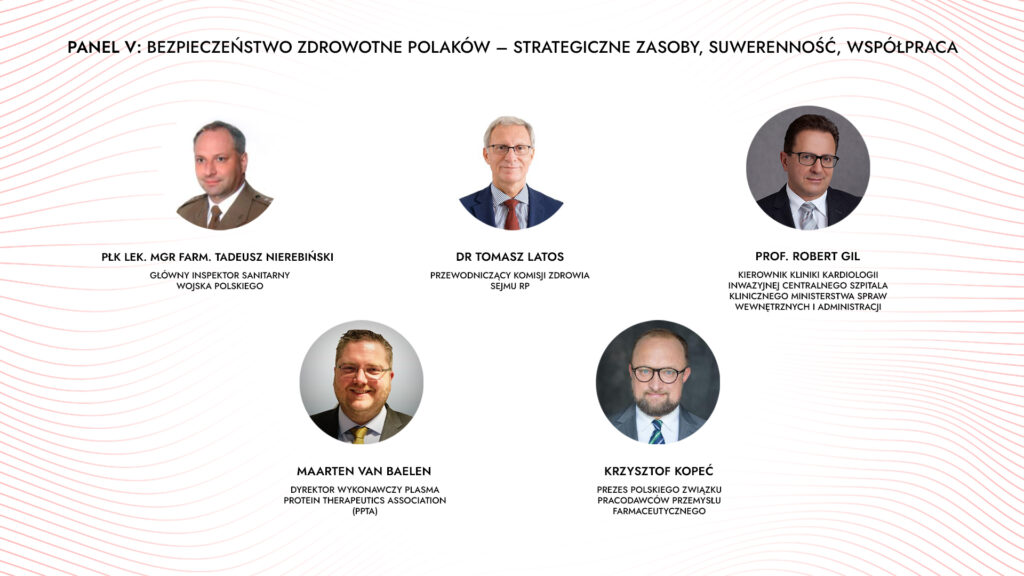

Colonel MD mgr. pharm. Tadeusz Nierebiński, Chief Sanitary Inspector of the Polish Army, spoke about the dependence of the military and civilian health services: ?there is no military health service without the state health service. They are simply two overlapping systems. What the civilian health service achieves is also achieved by the military health service. ?
Prof. Robert Gil, emphasized that ?the prestige and the role of the clinical and hospital epidemiology should be rebuilt, as it should advise us in such situations. There are very few such people in Poland and it is a real pity.?
Maarten Van Baelen, Executive Director of PPTA, referred to President Sierpiński?s speech: ?As Professor Sierpiński said in his first speech ? we were very dependent on third countries ? mainly the United States ? where, due to sanitary restrictions, the availability of these materials was significantly has fallen ? by twenty to several percent globally. Currently, it also generates supply problems and creates constraints on PDMP production.?
?I think that, first of all, when we think about the plasma fractionation factory and dealing with this matter, we should say ? finally. In fact, this is the best punch line for the Prime Minister?s decision, for which I am very grateful. I will say it right away, since I?ve been in the Sejm ? I?m here for 16 years ? this topic has been mentioned many times, and the need to deal with this subject has been repeatedly indicated in such a way that Poland would be completely independent in this area?? said Dr. Tomasz Latos.
Krzysztof Kopeć, President of the Polish Association of Pharmaceutical Industry Employers, continued the thought of MP Latos: ?it is good to have our own industry or our own plasma fractionation plant in order to have some independence. This independence, this resistance is built to create such a factory and this factory is not just a place where we produce one particular drug. It involves hundreds of people. This is a small town with laboratories, where there is a production line, where you have to collect blood products and then produce them.?

Dr. Anna Kowalczuk, Director of the National Medicines Institute, emphasized that ?we should definitely draw conclusions, learn from the mistakes. However, there is certainly a large dose of unpredictability of what may happen, what is still ahead of us. Zoonoses, viruses, bacteria are extremely clever organisms. They mutate, they change, so it seems to me it is like doping and anti-doping, we can be a bit behind these little creatures. ?
?This is probably the greatest thing we have learned in this pandemic, namely this unprecedented partnership, cooperation showing how important this cooperation is among all stakeholders in the field of health protection, especially in crisis situations? ? said Dimitri Gitas, Managing Director of MSD Polska.
In her turn, Dr. Edyta Bielak-Jomaa, Warsaw New Tech University Foundation, emphasized the importance of trust: ?We must remember that what is extremely important and what has already been discussed today during the meeting is the need to build trust ? the mutual trust not only among the stakeholders in the market of, for example, medical services, i.e. politicians, entrepreneurs, the sphere of the medical professions, but also trust in patient-family relations.?
Dr. Jarosław Oleszczuk, Member of the Genomtec Supervisory Board said: ?The pandemic has shown us that preventive healthcare as is it exists is still much more effective than the restorative medicine. One of the conclusions that I would like the world to draw is a much greater emphasis on a healthy lifestyle, on prevention, much larger investments related to it, because I think that it would significantly reduce the impact of COVID-19 or other diseases, I am not talking about chronic diseases, where the connection is much greater.?
?Also answering Mr. Editor?s question, whether we are able to prepare. Yes, provided that we draw conclusions from the experience and build our short-term strategies on time, it is difficult to say today and predict projections for 12 months afterwards and, as a rule, these strategies are built in a longer period, we also have to think about the end of the year and only verify these strategies? ? said Wojciech Miedziński, President of the Management Board of ARP Leasing Group (replacing Mateusz Berger).
Michał Kuczmierowski, President of the Governmental Agency for Strategic Reserves, said: ?One of very important areas that requires absolute coordination is knowledge, information about resources. Knowledge, information about what we possess, as well as its skillful management. It is one of the areas that we, as an Agency, are also evolving. We have such competences in the field of IT.?
?However, we must remember that we also need a third sector, i.e. civil society. I have the pleasure to represent this third sector as the president of the Kulski Foundation, as the president of the Institute for Social Policy Development. I would like to thank everyone. Remember that the role of the social sector is to build a platform. I hope we managed to build such a platform today. It was the fourth edition of this conference, and we have another one ahead of us? ? these words were summed up by the President of the Kulski Foundation, Małgorzata Bogusz.